|
It’s a long weekend here in Canada, and hopefully most of you are keeping cool, relaxing by the lake or the pool. Amid this hot summer in many parts of the world, one that’s been deadly for people in Quebec, it’s worth remembering that summer conditions are likely to get more extreme in the years to come.
Here are some thoughtful reads from around The Conversation network on efforts to fight climate change and to prepare for the blistering hot summers of our future.
Have an amazing weekend, and we’ll be back in your inbox on Tuesday morning.
|
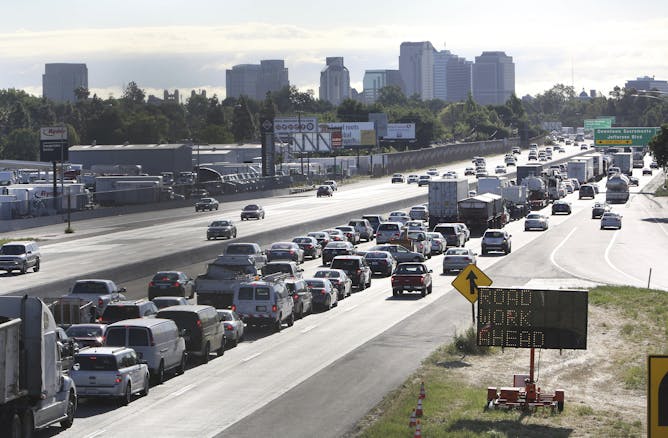
California and the Trump administration are going different directions on mileage standards.
AP Photo/Rich Pedroncelli
Meredith Hankins, University of California, Los Angeles; Nicholas Bryner, Louisiana State University
Law scholars from California unpack the legal questions raised by the Trump administration's plan to roll back mileage standards and revoke California's ability to set more stringent rules.
|
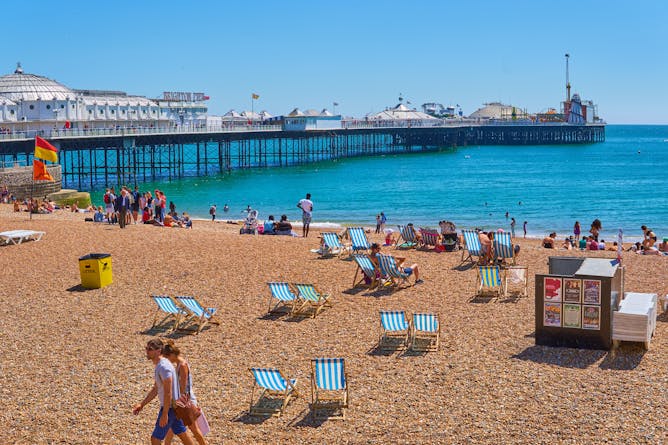
Michaelasbest / shutterstock
Len Shaffrey, University of Reading
A climate scientist explains what is going on with this heatwave.
|
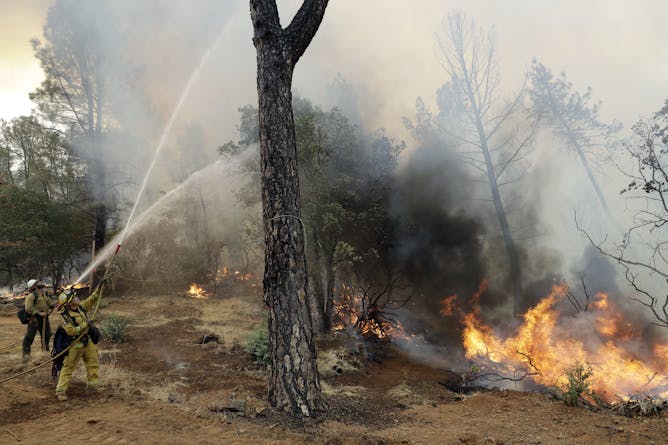
Firefighters hose down flames from an advancing wildfire July 28, 2018, in Redding, Calif.
AP Photo/Marcio Jose Sanchez
Michael Kodas, University of Colorado
Wildland firefighting has always been a risky job, but development in fire-prone areas is making it more dangerous by putting forest firefighters in situations they are not equipped or trained for.
|
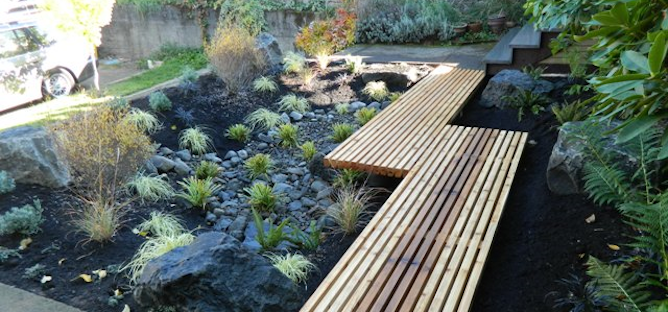
A residential rain garden in Portland’s Tabor to the River project.
City of Portland Government
Kevin Winter, University of Cape Town; Peta Brom, University of Cape Town
Faced with a drought, it's tempting for cities to reduce the amount of space that needs water. But this is not a good idea.
|

Technology can be used to help farmers produce good crops.
Leo Sebastian (IRRI-CCAFS)
Elwyn Grainger-Jones, CGIAR System Organization
Food systems must be transformed to produce more nutritious food with a lower environmental footprint.
|
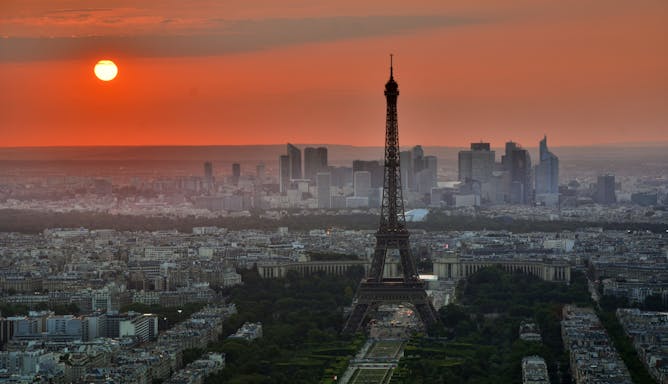
La chaleur a une influence importante sur la santé.
PxHere
Rémy Slama, Institut national de la santé et de la recherche médicale (Inserm)
La vague de chaleur qui frappe le pays en rappelle une autre : en 2003, une canicule faisait prendre durement conscience des risques de la chaleur pour la santé. Où en est-on quinze ans plus tard ?
|

Smiles all round for Britain’s adders.
Shutterstock
Paul Ashton, Edge Hill University
It's a bumper year for lizards, a mixed bag for butterflies and a dismal time for frogs and toads ...
|